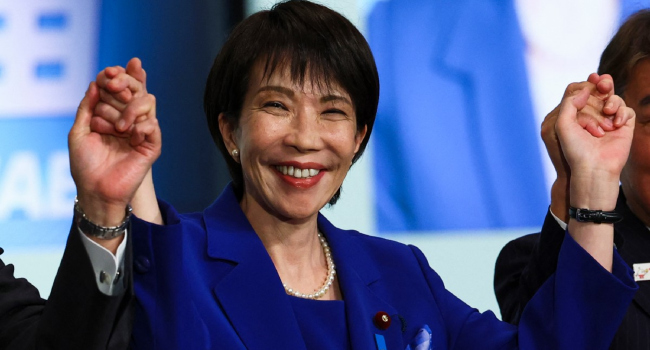World News
Japan: Sanae Takaichi Poised to Become First Woman Prime Minister

The political landscape in Japan has been dramatically reshaped with the election of Sanae Takaichi, a conservative veteran, as the new leader of the ruling Liberal Democratic Party (LDP). She is now set to be officially confirmed by the Diet as the country’s first female prime minister, marking a historic moment for a nation long struggling with gender parity in its highest office.
Dependable NG reports that Takaichi, the 64-year-old former Economic Security Minister, secured the leadership on a Saturday in early October 2025, winning a runoff vote against her main rival, the younger and more moderate Shinjiro Koizumi, 44. The LDP leadership contest was triggered by the resignation of Prime Minister Shigeru Ishiba, whose brief tenure was marked by scandal and significant electoral losses. The new LDP president is expected to be formally installed as prime minister in the middle of October.
In the decisive second round of voting for the LDP presidency, Takaichi defeated Koizumi with a count of 185 votes to 156. The initial round of voting among the five candidates saw Takaichi lead with 183 votes, while Koizumi had 164. Takaichi’s victory represents a definitive shift to the right for the LDP, a party that has governed Japan for most of the post-war era. She campaigned on restoring party unity and winning back public support that has been hemorrhaging due to persistent inflation, a cost-of-living crisis, and a recent high-profile slush fund scandal.
A protégé of the late former Prime Minister Shinzo Abe, Takaichi’s political platform is notably hardline and nationalist. Her agenda is heavily focused on national defense and economic security, with an emphasis on aggressive fiscal spending and monetary easing, closely mirroring the “Abenomics” policies of her mentor. She will be forced to navigate a challenging political environment, as the LDP-led coalition recently lost its majority in both houses of the Diet, meaning she will need to secure cooperation from opposition lawmakers to govern effectively.
While her ascension is a landmark moment for women in Japanese politics, Takaichi’s views on social and gender issues are firmly rooted in the conservative wing of the LDP. Analysts quickly pointed out that her victory does not necessarily translate into a ‘feminist’ choice for the country. She notably opposes the revision of a 19th-century civil code that requires married couples to share a single surname—a rule that overwhelmingly sees women abandon their own family name. This conservative stance stands in contrast to the broader public support for allowing separate surnames.
This is a critical area for Japan, which the World Economic Forum’s 2025 Gender Gap Report ranked at a low 118 out of 148 countries, primarily due to the severe underrepresentation of women in government. Takaichi, however, acknowledging the glaring gender imbalance in Japanese governance, did pledge in her campaign speech to raise the gender balance in her cabinet to levels comparable to “Nordic” nations such as Iceland, Finland, and Norway, which occupied the top three spots in the same gender gap report.
Takaichi’s foreign policy is expected to be equally assertive. She has been a vocal critic of China’s growing military influence in the Asia-Pacific and has advocated for stronger security ties with Taiwan. Her history of making regular visits to the controversial Yasukuni Shrine—which honors Japan’s war dead, including convicted war criminals—is likely to inflame tensions with neighboring countries, particularly China and South Korea. Furthermore, she has signaled a tough stance on international trade, raising the possibility of renegotiating a key investment deal with the United States if it is deemed harmful to Japan’s interests. The new prime minister’s immediate foreign policy test will include a likely meeting with the US President at the Asia-Pacific Economic Cooperation (APEC) summit later in the month. The coming weeks will reveal whether this ‘Iron Lady 2.0,’ who once played the drums in a college heavy metal band and cites former British Prime Minister Margaret Thatcher as her hero, can unite her fractured party and navigate the significant economic and geopolitical challenges facing Japan.
